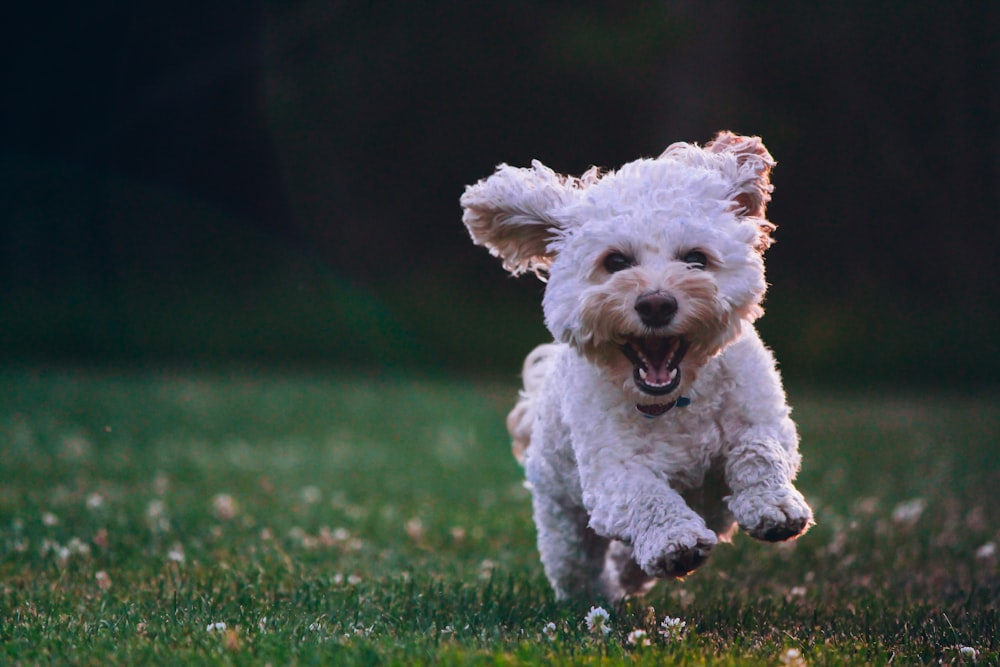10 Most Googled Dog Questions
Google isn’t the only place you can go for questions you have just been dying to know the answer to. Today we are going to cover the most searched dog questions on the Internet. Let’s get started!
1. Why do dogs eat grass?
Most vets agree that eating grass helps relieve upset stomachs and other gut symptoms. Some dogs, however, seem to simply enjoy the taste, especially from early, green moist growth.
2. Do dogs dream?
Yes, dogs dream. Research with EEG scanning conducting while dogs slept support dream activity. If you watch your dog closely, you will notice that they occasionally move their legs as if running, whine, whimper, or even bark, breathe heavily, and have normal rapid eye movements during dream sleep.
3. How long are dogs pregnant?
This answer is more complicated than you may think. However, the is approximately 63 days from conception, although this can vary. Compared to humans, however, this nine weeks for dog pregnancy is pretty short.
4. Was Goofy a dog?
Although an anthropomorphic one, Goofy is in fact, a dog. He was first introduced to the world in 1932 on a cartoon called “Mickey’s Revenue.” In this cartoon, he was known as Dippy Dawg.
5. Why does my dog lick me?
Your dog might offer up some kisses for a few reasons. It could be because you taste good, they’re “rewarded” for it, or even to show submission.
6. Why do dogs howl?
A howl is a nonspecific form of communication behavior. Howls happen with stress or territorial issues. Howling can also simply be a fun activity they do together.
7. How can you tell how old a dog is?
This is a question that is difficult to answer at home and something to consult your veterinarian about. You might be able to distinguish an older dog from a younger one because of gray hairs on his muzzle or paws. In general, though, smaller dogs live longer than larger dogs.
8. What happens when a dog eats chocolate?
Chocolate contains stimulants called methylxanthines, specifically theobromine and caffeine. These chemicals can wreak havoc on your dog’s metabolic processes, resulting in chocolate toxicity. Symptoms of chocolate toxicity include vomiting, diarrhea, abnormal heart rhythms, and more.
Dogs are individually sensitive to methylxanthines and therefore, different dogs may react differently to chocolate. Regardless, chocolate is still top of the list on things to keep your dog away from. If you think your dog has eaten chocolate, you should consult your veterinarian immediately.
9. Why are dogs’ noses wet?
A dog’s sense of smell is one of their most remarkable features, and a dog’s wet nose helps to amplify this sense of smell. By excreting a thin layer of mucous across their nose, dogs are able to better absorb the scents they encounter in their environment. Once absorbed into the mucus, a dog can then lick their nose to remove the scent and bring it to the olfactory glands on the roof of their mouths. In addition to amplifying a dog’s sense of smell, a wet nose also helps them to regulate their body temperature. Because dogs lack normal sweat glands throughout their body, they instead rely on secretion of sweat through the pads of their feet and their nose to help cool down.
10. Why do dogs chase their tails?
Some tail chasing can be normal play or grooming behavior. It can also be a response to an injury. Consistent tail chasing, however, is abnormal and can fall into behavioral concerns of attention-seeking activity or OCD (obsessive compulsive disorder). These abnormal behaviors are likely reinforced by an endorphin release causing a pleasure response in the brain.

